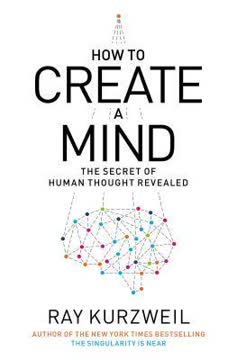Key Takeaways
1. Transcend Your Biology: Reprogram Your Biochemistry for Longevity
"We have exactly doubled the amount of the genetic data collected each year since 1990, and this pace has continued since the completion of the Human Genome Project in 2003."
Genetic revolution. The completion of the Human Genome Project in 2003 marked a turning point in our understanding of human biology. This breakthrough has led to exponential growth in genetic data collection and analysis, doubling every year since 1990. This rapid accumulation of knowledge is transforming our ability to understand and potentially modify our genetic makeup.
Reprogramming biology. The authors argue that our genetic code is outdated, better suited for Paleolithic times than modern life. However, we now have the tools to "reprogram" our biochemistry through targeted interventions. This includes lifestyle changes, nutritional strategies, and emerging biotechnologies that can help us overcome our evolutionary limitations.
Key areas for biochemical reprogramming:
- Inflammation control
- Hormone optimization
- Metabolic regulation
- Cellular repair and regeneration
2. Optimize Brain Health: Exercise Your Mind and Protect Cognitive Function
"We now know the brain possesses plasticity, meaning it is perhaps the most dynamic and self-organizing organ of the body."
Neuroplasticity. The brain's ability to form new neural connections and reorganize itself throughout life is a groundbreaking discovery. This plasticity allows us to continually learn, adapt, and even recover from injuries. Understanding and harnessing neuroplasticity is key to maintaining cognitive health as we age.
Brain health strategies. The book outlines several approaches to optimize brain function and protect against cognitive decline:
Mental stimulation:
- Learn new skills
- Engage in challenging intellectual activities
- Practice mindfulness and meditation
Physical exercise:
- Increases blood flow to the brain
- Promotes the growth of new neurons
- Improves overall cognitive function
Nutrition for the brain:
- Omega-3 fatty acids
- Antioxidants
- Low-glycemic foods
3. Heart Health Revolution: Prevent Cardiovascular Disease Through Lifestyle
"We now have the knowledge to reduce heart attack rates by more than 90 percent."
Paradigm shift. The authors present a new understanding of heart disease that focuses on inflammation and vulnerable plaque rather than just cholesterol levels. This shift in perspective has led to more effective prevention and treatment strategies.
Comprehensive approach. Preventing heart disease requires a multi-faceted approach that addresses various risk factors:
Dietary interventions:
- Reduce saturated and trans fats
- Increase omega-3 fatty acids
- Lower glycemic load
Lifestyle modifications:
- Regular exercise
- Stress management
- Smoking cessation
Targeted supplementation:
- Coenzyme Q10
- Omega-3 fish oils
- Plant sterols
Advanced diagnostics:
- Coronary calcium scans
- High-sensitivity C-reactive protein tests
- Advanced lipid panels
4. Master Your Metabolism: Balance Hormones for Youthful Vitality
"Hormones are essential to life. These chemical messengers travel throughout the body to trigger and regulate an array of critical processes, including cell growth, digestion, sleep cycles, cholesterol levels, reproduction, and sex drive."
Hormonal balance. The book emphasizes the critical role hormones play in maintaining health and youthfulness. As we age, hormone levels naturally decline, but there are strategies to optimize hormonal balance and mitigate the effects of aging.
Hormone optimization strategies:
Lifestyle interventions:
- Regular exercise, especially strength training
- Stress reduction techniques
- Adequate sleep
Nutritional support:
- Consume hormone-supporting nutrients
- Balance macronutrients for optimal hormone production
Targeted supplementation:
- DHEA
- Melatonin
- Vitamin D
Bioidentical hormone replacement therapy:
- Individualized approach under medical supervision
- Potential benefits for symptoms of aging and overall health
5. Nutrition for Life Extension: Eat to Live Longer and Healthier
"Eating a diet high in sugary foods and starches significantly raised the risk of colorectal cancer."
Nutritional paradigm. The authors present a nutrition strategy focused on longevity and disease prevention, moving beyond simple calorie counting or traditional dietary guidelines.
Key nutritional principles:
Low glycemic load:
- Minimize sugar and refined carbohydrates
- Focus on low-starch vegetables and fruits
Healthy fats:
- Increase omega-3 fatty acids (fish, flaxseed)
- Moderate consumption of monounsaturated fats (olive oil, avocados)
- Minimize saturated and trans fats
Quality protein:
- Emphasize plant-based proteins (legumes, nuts)
- Include lean animal proteins in moderation
Nutrient density:
- Prioritize foods rich in vitamins, minerals, and phytonutrients
- Incorporate a wide variety of colorful fruits and vegetables
Caloric moderation:
- Practice "hara hachi bu" (eat until 80% full)
- Consider intermittent fasting or time-restricted eating
6. Exercise as Medicine: Physical Activity for Longevity and Vitality
"Exercise will not only make you stronger-it is one of the strongest pillars of your program for prevention of disease."
Exercise prescription. The book presents physical activity as a powerful medicine for preventing disease and promoting longevity. Regular exercise has been shown to improve cardiovascular health, boost immune function, enhance cognitive performance, and even extend telomere length.
Comprehensive fitness program:
Aerobic exercise:
- 30 minutes of moderate-intensity activity, most days of the week
- Examples: brisk walking, jogging, cycling, swimming
Strength training:
- 2-3 sessions per week, targeting all major muscle groups
- Benefits: increased muscle mass, bone density, and metabolic rate
Flexibility and balance:
- Daily stretching routines
- Consider yoga or tai chi for improved balance and mind-body connection
Interval training:
- Incorporate high-intensity intervals for enhanced cardiovascular benefits
- Example: alternating periods of vigorous and moderate activity
7. Stress Management: Relaxation Techniques for Health and Longevity
"Chronic stress can contribute to decreased immune system function, gastrointestinal disorders, type 2 diabetes, cancer, rheumatoid arthritis, heart disease, and stroke."
Stress impact. The authors highlight the detrimental effects of chronic stress on health and longevity. Unmanaged stress can accelerate aging processes and increase susceptibility to various diseases.
Stress reduction strategies:
Mindfulness and meditation:
- Practice daily meditation or mindfulness exercises
- Cultivate present-moment awareness
Breathing techniques:
- Deep diaphragmatic breathing
- Progressive muscle relaxation
Physical activity:
- Regular exercise helps combat stress
- Consider yoga or tai chi for mind-body benefits
Social connections:
- Nurture supportive relationships
- Engage in community activities
Time management:
- Prioritize tasks and set realistic goals
- Learn to say "no" to unnecessary commitments
8. Supplementation Strategies: Enhance Your Health with Targeted Nutrients
"Diet alone cannot supply enough of these antioxidants to keep free radicals under control, especially as you age, so supplementation is required."
Supplement rationale. The book argues that even with a healthy diet, modern lifestyles and environmental factors make it challenging to obtain optimal levels of all necessary nutrients. Targeted supplementation can help fill these gaps and provide additional health benefits.
Key supplements and their benefits:
Multivitamin/mineral:
- Foundation for overall health
- Fills nutritional gaps in the diet
Omega-3 fatty acids:
- Reduce inflammation
- Support heart and brain health
Vitamin D:
- Bone health
- Immune system support
- Potential cancer prevention
Coenzyme Q10:
- Energy production
- Antioxidant protection
Antioxidants (Vitamin C, E, alpha-lipoic acid):
- Combat oxidative stress
- Support cellular health
Specialized supplements:
- Based on individual needs and health goals
- Examples: resveratrol, curcumin, probiotics
9. Early Detection: Cutting-Edge Diagnostics for Preventive Health
"Early detection remains a critical component of a comprehensive program to reduce cancer deaths."
Proactive health management. The authors stress the importance of advanced diagnostics for early detection of disease processes, often before symptoms appear. This approach allows for more effective interventions and better health outcomes.
Innovative diagnostic tools:
Genetic testing:
- Identify predispositions to certain diseases
- Guide personalized prevention strategies
Advanced imaging:
- Coronary calcium scans for heart disease risk
- Full-body MRI for early cancer detection
Biomarker analysis:
- High-sensitivity C-reactive protein for inflammation
- Telomere length for biological aging
Metabolic testing:
- Comprehensive hormone panels
- Glucose tolerance and insulin sensitivity tests
Microbiome analysis:
- Assess gut health and its impact on overall wellness
10. Weight Management: Achieve and Maintain Optimal Body Composition
"Being just 20 percent overweight triples your risk of high blood pressure and type 2 diabetes and boosts your risk of heart disease by 60 percent."
Weight impact. The book emphasizes the significant health risks associated with excess weight and provides strategies for achieving and maintaining a healthy body composition.
Weight management approach:
Calorie awareness:
- Understand your maintenance calorie level
- Create a modest calorie deficit for gradual weight loss
Macronutrient balance:
- Focus on protein and healthy fats for satiety
- Limit refined carbohydrates and sugars
Mindful eating:
- Practice "hara hachi bu" (eat until 80% full)
- Pay attention to hunger and fullness cues
Regular physical activity:
- Combine aerobic exercise and strength training
- Increase non-exercise activity thermogenesis (NEAT)
Behavioral strategies:
- Keep a food diary
- Develop healthy coping mechanisms for emotional eating
11. The Future of Longevity: Emerging Technologies and Therapies
"We will be able to actually change our genes in order to live-well-for decades longer than what we now consider a long life."
Technological revolution. The authors paint an exciting picture of future longevity interventions, from gene therapy to nanotechnology. While some of these technologies are still in development, they represent the potential for dramatic increases in human healthspan and lifespan.
Emerging longevity technologies:
Gene therapy:
- Correct genetic defects
- Enhance beneficial genes
Stem cell therapies:
- Regenerate damaged tissues and organs
- Potentially reverse aging processes
Nanotechnology:
- Microscopic robots for cellular repair
- Targeted drug delivery
Artificial organs:
- 3D-printed replacements
- Bioengineered tissues
Brain-computer interfaces:
- Enhance cognitive function
- Preserve memories and consciousness
These future technologies, combined with the lifestyle and health strategies outlined in the book, offer the potential for dramatically extended, healthy lifespans.
Last updated:
FAQ
What's Transcend: Nine Steps to Living Well Forever about?
- Focus on Longevity: The book aims to help readers dramatically slow down aging and reduce disease risks for a longer, healthier life.
- Two-Part Structure: Part I addresses aging and chronic disease issues, while Part II offers a plan to tackle these challenges.
- Personal Responsibility: Emphasizes taking control of one's health and being proactive in well-being management.
Why should I read Transcend: Nine Steps to Living Well Forever?
- Cutting-Edge Insights: Offers insights into the latest health and medical advancements, especially in genomics and biotechnology.
- Practical Steps: Provides actionable advice through the TRANSCEND program, which includes nine steps for health improvement.
- Empowerment: Encourages informed health decisions based on the latest scientific research.
What are the key takeaways of Transcend: Nine Steps to Living Well Forever?
- Nine Steps to Health: The TRANSCEND program includes steps like talking with your doctor, relaxation, and nutrition.
- Personalized Health Approach: Tailors health strategies to individual needs based on personal health profiles and genetics.
- Future Technologies: Discusses potential future technologies like nanotechnology and gene therapy for health enhancement.
What is the TRANSCEND program in Transcend: Nine Steps to Living Well Forever?
- Comprehensive Health Framework: A structured approach to achieving optimal health and longevity with nine key components.
- Focus on Prevention: Emphasizes disease prevention and early detection, encouraging proactive health management.
- Personalized Assessment: Encourages assessing unique health situations and tailoring strategies accordingly.
How does Transcend: Nine Steps to Living Well Forever address aging and disease?
- Understanding Aging: Aging is multiple processes that can be slowed or reversed, not a single process.
- Chronic Disease Prevention: Outlines lifestyle changes and medical advancements to reduce chronic disease risks.
- Genetic Insights: Highlights the role of genetics in aging and disease, stressing the importance of genetic understanding.
What are the recommended lifestyle changes in Transcend: Nine Steps to Living Well Forever?
- Nutrition Focus: Advocates for a diet rich in fruits, vegetables, and healthy fats while reducing sugar intake.
- Regular Exercise: Emphasizes maintaining a regular exercise routine, particularly strength training.
- Stress Management: Highlights the need for effective stress management techniques to improve well-being.
What is the significance of genomics in Transcend: Nine Steps to Living Well Forever?
- Understanding Your Genes: Genomics helps individuals understand genetic predispositions to diseases.
- Predictive Genomics: Discusses personalized health strategies based on genetic testing.
- Lifestyle Impact: Emphasizes that lifestyle choices significantly impact health outcomes beyond genetic predispositions.
How does Transcend: Nine Steps to Living Well Forever suggest managing hormones?
- Hormone Optimization: Balancing hormones like testosterone, estrogen, and cortisol is crucial for health.
- Testing and Monitoring: Recommends regular hormone level testing to maintain optimal ranges.
- Natural Approaches: Advocates for natural hormone optimization methods, including lifestyle changes.
What are the future technologies mentioned in Transcend: Nine Steps to Living Well Forever?
- Nanotechnology: Potential to revolutionize health care with nanobots for disease prevention and treatment.
- Gene Therapy: Highlights advancements that can correct genetic predispositions and improve health.
- Biotechnology Revolution: Predicts significant health and longevity improvements in the coming decades.
What are the best quotes from Transcend: Nine Steps to Living Well Forever and what do they mean?
- Personal Accountability: "You alone are responsible for your health—not your doctor, not your relatives, not your friends."
- Optimistic Future: "The sands of time will soon start to run in rather than run out of your personal hourglass."
- Transcending Limitations: "To live long enough to live forever is to go above or beyond the original boundaries of our genetic legacy."
How does Transcend: Nine Steps to Living Well Forever emphasize personal responsibility in health?
- Self-Management: Encourages readers to take charge of their health rather than relying solely on medical professionals.
- Informed Decisions: Stresses the importance of making health decisions based on current scientific research.
- Proactive Approach: Advocates for a proactive approach to health management, including regular assessments and lifestyle adjustments.
How does Transcend: Nine Steps to Living Well Forever propose using new technologies for health?
- Nanotechnology and Gene Therapy: Discusses using these technologies to prevent and treat diseases.
- Biotechnology Advancements: Predicts that biotechnology will significantly enhance health and longevity.
- Integration with Lifestyle: Suggests combining technological advancements with lifestyle changes for optimal health outcomes.
Review Summary
Transcend receives mixed reviews, with an average rating of 3.88/5. Readers appreciate the comprehensive health advice and futuristic outlook but find some recommendations controversial. Many value the actionable information on nutrition, exercise, and longevity. Critics question the scientific basis of some claims and find the future predictions overly optimistic. The book's emphasis on extending lifespan to benefit from future medical advancements is both praised and criticized. Overall, readers find it thought-provoking, even if they don't fully embrace its premise.
Similar Books









Download PDF
Download EPUB
.epub digital book format is ideal for reading ebooks on phones, tablets, and e-readers.









